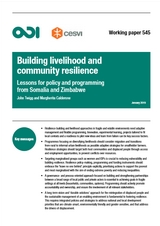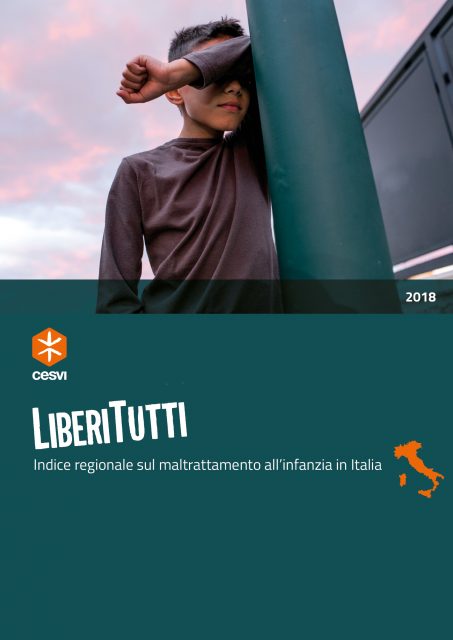Political, social and economic research and analysis – including the collection and processing of data and facts emerging from our projects – combine to form a methodology which allows us to examine specific phenomena.
Our publications are based on this methodology.
It’s important to rely on data, because only thus can we define the real scale of the phenomena we are dealing with and understand where intervention is most urgent.
The data we collect, process and analyse allow us to provide an overview on the phenomenon being researched, leading at the same time to operational proposals in the form of strategic recommendations addressed to institutions.
We present below brief summaries of the most important publications we have edited. For further information we suggest the consultation of the specific insight sections.
Global Hunger Index 2025.20 years of tracking progress: time to recommit to zero hunger
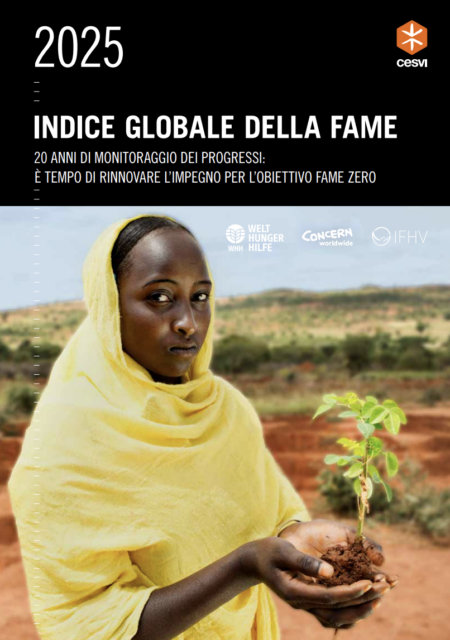
Over the past year, wars and armed conflicts have triggered 20 food crises and plunged 140 million people into acute hunger[1], a number equivalent to more than twice the entire population of Italy. In several contexts, hunger has not only been a “collateral” consequence of armed violence, but has been deliberately inflicted through sieges, aid blockades and the destruction of agricultural infrastructure, i.e. used as a weapon of war.
The report highlights that, currently, more than 40 countries around the world are facing severe and alarming levels of hunger.
The global score of the 2025 Global Hunger Index (GHI) is 18.3, indicative of a “moderate” level of global malnutrition: in 2024, a total of over 295 million people in 53 countries and territories suffered from acute hunger, 13.7 million more than in 2023[5].
Global Hunger Index 2024: How gender justice can advance climate resilience and Zero Hunger
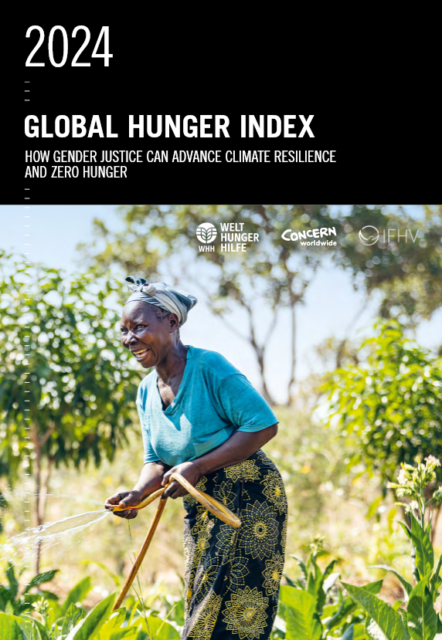
The Index has been adopted and developed by the International Food Policy Research Institute (IFPRI) which published it for the first time in 2006. Today the annual pubblication is edited by the German NGO Welthungerhilfe and the Irish Concern Worldwide, partners in the Alliance2015 network, and, from this year, together with IFHV – Institute for International Law of Peace and Armed Conflict. Cesvi has curated the Italian edition since 2008.
Building livelihood and community resilience
Cesvi is aware that resilience is a crucial issue in much of its programming, especially in fragile and conflict-affected areas.
This Policy Paper, implemented by ODI, aims to operationalize Cesvi’s approach more effectively and promote more successful resilience-building policies and interventions. It presents the analysis of two case studies related to Somalia and Zimbabwe.
Download the paper
Migrants and Integration: a challenge for the future
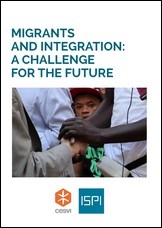
The “challenge for the future” is to invest those savings in integration programmes, which in a long-term perspective will have positive effects on both economy and welfare.
Download the paper
25 Years after the Oslo Accords – Time for a new narrative
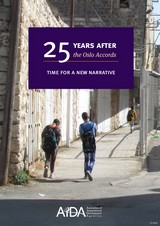
The inviolable principles of responsibility, self-determination and respect for human rights should be followed in meeting this goal.
Download the report
Regional Index of child maltreatment in Italy
The Regional Index of child maltreatment in Italy is a statistical-quantitive report, processed by Cesvi with a research team, which estimates children’s vulnerability to the phenomenon of maltreatment in the various regions of Italy.
It is based on the analysis of risk factors and of the services available in every region, taking into account both the categories of the potential victims and those of the potential adult abusers.
The Index is currently available only in italian. It can be downloaded here.

